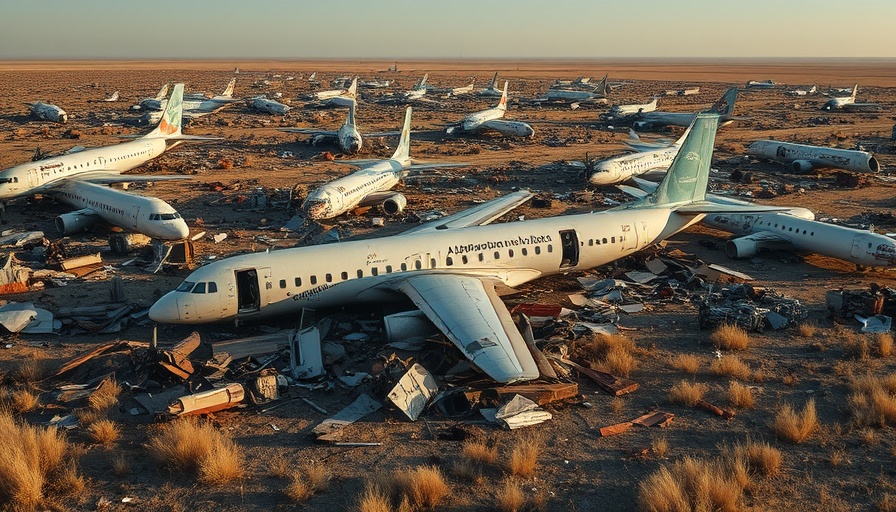
Boeing's Responsibility for 737 Max Crashes
In a landmark agreement, Boeing has reached a settlement with the U.S. Justice Department involving more than $1.1 billion, aimed at addressing the repercussions of the deadly 737 Max crashes. This settlement not only mandates Boeing to engage in new safety measures but also includes an additional payment of $445 million to the families of victims affected by these tragic incidents.
The Impact on Boeing's Reputation
This deal marks a significant turning point for Boeing, a company that has faced scrutiny and criticism since the 737 Max was grounded in 2019 following two catastrophic crashes that resulted in the loss of 346 lives. The financial penalties will not only affect the company's bottom line but also raise questions about its corporate governance and commitment to safety standards. Business professionals are keenly observing how this will impact Boeing’s relations with regulators and the public moving forward.
Corporate Accountability in the Aviation Industry
Boeing's settlement can be seen as a reflection of a broader trend in the corporate world where there is an increasing demand for accountability, particularly in industries that impact public safety. The aviation sector, in particular, has been under pressure to enhance transparency and improve safety practices, particularly after significant mishaps like those involving the 737 Max.
Future Implications for Airline Manufacturers
This substantial financial deal raises important questions about the future of airline manufacturing and corporate responsibility. For business professionals, the implications are clear: companies must prioritize consumer safety and ethical practices over profit margins. As the market evolves, those who fail to adapt might face not only regulatory challenges but also severe financial penalties and lasting damage to their reputations.
What This Means for the Business Landscape
While Boeing navigates this challenging phase, the broader business implications resonate throughout the aviation industry and beyond. Organizations are feeling the pressure to strengthen their compliance practices and improve their production protocols. This trend reflects a growing consumer expectation for corporate integrity and social responsibility.
As businesses learn from Boeing's experience, the focus on enhancing corporate social responsibility (CSR) initiatives is becoming more critical than ever. With growing awareness and scrutiny, future business strategies will likely incorporate strong ethical practices at their core.
Lastly, understanding the evolution of corporate accountability within the aviation sector can provide valuable insights for business professionals across industries. Adapting to this paradigm will be essential as it shapes the patterns of accountability and consumer relations moving forward.
 Add Row
Add Row  Add
Add 



Write A Comment